
Many of us must have dreamed of upping sticks for somewhere with better climbing or more mountains. But it's not all sunny days and free time; life in the hills has challenges too. In our new series, people who have made the break share their experiences, good and bad, of relocating to follow their passion.
I got myself a base in the Northwest Highlands ten years ago and have lived here full-time for four years. So what has it been like for us? And what might you want to think about if you're considering a similar move?
First up, I can see the mountains out of my windows every day. I live with my partner in a former crofter's cottage: painted in the traditional white, double-fronted, with big sloping ceilings upstairs, and a wood-burner at one end of the house and an open fire at the other. We overlook a bay where we plan to keep a yacht.
On the far shore of a thin sea loch an area of mountains rises, the size of Greater London and empty of people
Our village has a dentist, doctor, library, two garages, half a dozen places to eat or drink, an award-winning old folks' home (reassuring for later), and a couple of shops that while small always surprise us by having what we need.
From the hill just along the road I can see Kintail, Knoydart, the Cuillin of Skye, Harris, Applecross, and Torridon. I can be up there and back in a couple of hours.
But the nearest supermarket is 25 miles away, the nearest superstore 45 miles, and the nearest city and airport is 65 miles distant on the other side of the country. All three roads to the village are single track for some distance. There's no gas main over here on the west coast, so domestic heating is oil-fired or electric. The weather is colder than at the other end of the UK. We have the heating on for nine months of the year: my parents in Surrey switch on for only six.
So heating costs are higher here. And so is the cost of many other things, like food, because it must travel further to get here. Deliveries take a day or two longer than they do to less remote places. Surcharges sometimes apply; or that item you really need can't be delivered at all and you have to drive a long way to fetch it.
On the other hand, while the choice of local services is limited, trades people are easy to find and they have local reputations to protect. In our experience they do a great job.
People are friendly. In remote places a chat in the street is part of daily life and grudges not even worth thinking about. You'd be lonely very quickly if you fell out with anyone. We've had a lovely welcome here.
People help each other out. We're rebuilding a yacht for exploring remote and mountainous coasts. We've acquired a mooring for her in the bay below our house. Getting involved with moorings was a way of meeting people with something in common. Maintaining moorings and boats is better together. And of course, so is sailing itself.
What we didn't expect was so many incomers. We're incomers ourselves, so, yes, guilty. We may have helped push up house prices and dilute local culture.
Yet, how guilty is hard to know. Across the Highlands and Islands the property picture varies widely: Rightmove reports the average house price in Aviemore is £235k and in the Western Isles £153k, and those are not the upper and lower limits. According to the Office for National Statistics' latest, house prices in Highland rose 7.3% in the year to May 2022, which is a lot, but for Scotland as a whole it was much higher at 11.2%, and it was probably COVID-driven and temporary. The optimist in me says prices will settle again and wage inflation will catch up.
In remote places a chat in the street is part of daily life. We've had a lovely welcome here
Our village anyway doesn't feel 'discovered'. The number of holiday homes seems low, for example, and some of those are owned by people who grew up here and will return when they retire. Other houses get handed down in local families, so the price doesn't matter, and those houses stay in local hands.
What I can tell you, when it comes to property, is that we'll never have a life changing amount of equity to release from our house when we're older. That's because houses are all there are here. There are almost no flats or small terraces. Downsizing can't be done because there's nothing to downsize to.
As for local culture, however, older people will tell you how it's changed. They remember when nobody locked their doors. Our elderly neighbours don't use their front door or expect you to have an invitation before you visit. You go around to the back door, let yourself in, sit down, and have a cup of tea, when you want to.
Those born here before the war spoke Gaelic at home and learned English only when they went to school. You have to go a lot further north and west now, to the outer fringes of the Western Isles, to find Gaelic spoken as the everyday norm.
So, moving to the mountains is not necessarily the cultural adventure you might think it will be, unless you seek it out.
It's there if you want it, in friends who play the pipes and compete in piping competitions, in the local Highland games alive and well, in the unusual number of artists and writers around here, and in advertised gigs and events. And if you play you might still join in.
The culture has a good chance of survival. The kids learn Gaelic at school and the population of the Highland Council area is on a steady upward trend, bringing more life and possibility.
You can also argue that local cultures are being diluted everywhere due to the internet and other global cultural phenomena. Some things have become the same wherever we go and that's ever more true as the decades of globalisation bound onwards. The outside world persists on being with us all the time, in our pockets on our phones.
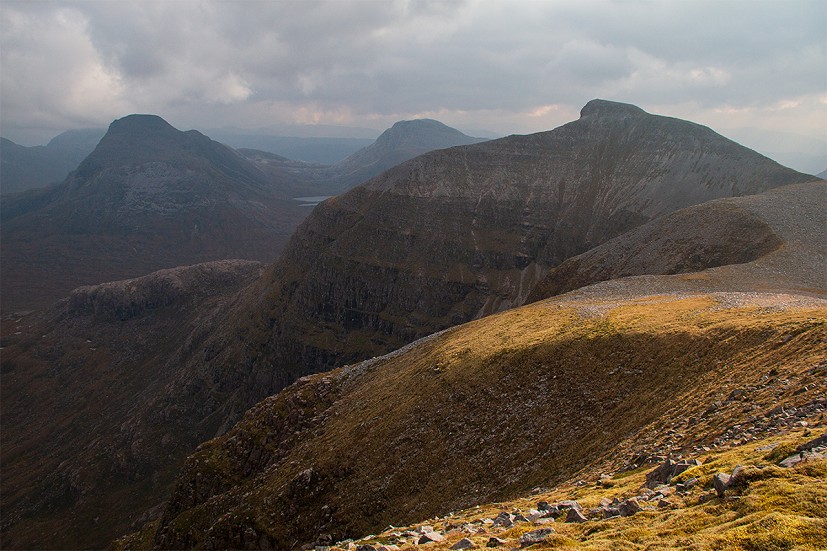
Some of these issues are complicated. And much of what I've said is anyway only personal experience of a particular place. Other people in other places will have their different stories. The truth is that each newbie must assess for themselves the impact they will have on the place they want to go.
What you do get from moving here, obviously, is access to the mountains. And not just the local ones. From here, places which for others would be a major expedition are a simple overnight trip or merely a day out. That's a miracle.
If you think you'll be out in the hills, down at the crag or on the water every day, think again
What's more, you can often get home at night after a hard day in the hills. No more soggy tents and washing in streams if don't want them. Home you go after a long day out, to a bath, your favourite supper and favourite drink, and your own warm, dry bed.
What you don't realise until you get here is how much of your time will be taken up by everyday chores. You still have shopping, cleaning, fixing the car and house, admin and trips to the post office to do. Some of those things are more time consuming here.
Then there's that larger-than-you-might-otherwise-have-in-the-city garden to maintain. Against the backdrop of mountains it looked deceptively small when you bought it. Sorting the woodstore and the splitting logs sounds romantic, and don't get me wrong, I like the physical work of living here, I even like the cold winters, but our lifestyle eats time.
If you think you'll be out in the mountains, down at the crag or on the water every day, think again. When you used to come here on holiday you went out daily, but only because you'd suspended your everyday life for a week or two. Here you must fit your climbing and boating, or whatever it is you love to do, between a lot of other familiar stuff.
And your travelling might increase, in effect adding to the time and money you spend accessing the mountains, rather than decreasing it. Unless you brought your parents, siblings, and best friends with you, travelling to see them will involve long journeys that may be a larger commitment than driving to the mountains for your holidays. Work, also, doesn't go away, unless you're independently wealthy or retired.
On the other hand, if you can work remotely, which in the post-pandemic world is more acceptable than it was, working here can be easier than in many cities. Great broadband isn't everywhere, but it's not everywhere in cities either, and if you do your homework you can find it up here [or not - Ed.].
Do your homework on schools and health services too: there's a lively school here and we can get to see a doctor or dentist within a day or three.
And check out the place in November in the darkness and rain. Can you hack it? Some can't.
But I wouldn't be anywhere else. The mountains are my home now. Even a short walk is a pleasure: a tea-break kicking along the beach, perhaps. The exercise and clean air I get in the mountains may keep me healthier than I might manage in the city. People seem to live a long time here.
The view from my desk can't be bettered. On the far shore of a thin sea-loch an area of mountains rises, the size of Greater London, empty of people, its near peaks guarding its mysteries.
I'm also seeing and appreciating mountains differently. My view of the hills is not the same in any one minute. As the day quietly passes, the mountains make their own weather, which casts its own changing light. Colours and shadows reveal them always uniquely in the moment. Looking out the window at them feeds my soul just as surely as climbing them does.
So, I go climbing mountains, not when my holiday comes around with whatever insufferable weather is forced upon me, but when the weather is good.
Once upon a time I was in too much of a hurry to notice the difference between a hillside rendered flat by harsh summer light, and the textures revealed by the sun's winter glance. There I was, careering around conquering and counting mountains and valuing only my brief minutes on their summits.
Now I am still, as if suspended in the moment of my awestruck arrival here. My city life of rushing around blindly, is over and done.
Check out these hill routes in Wester Ross



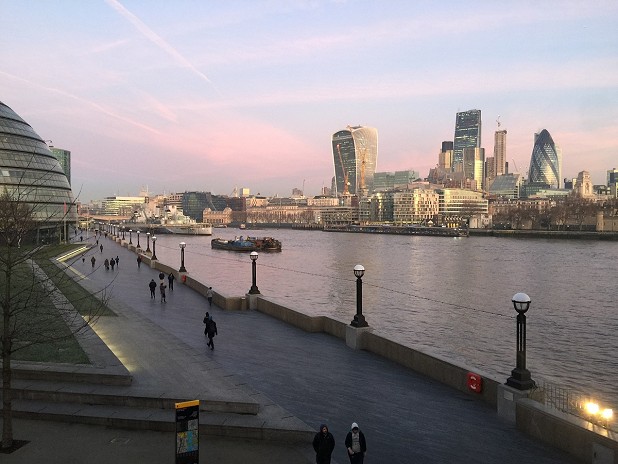
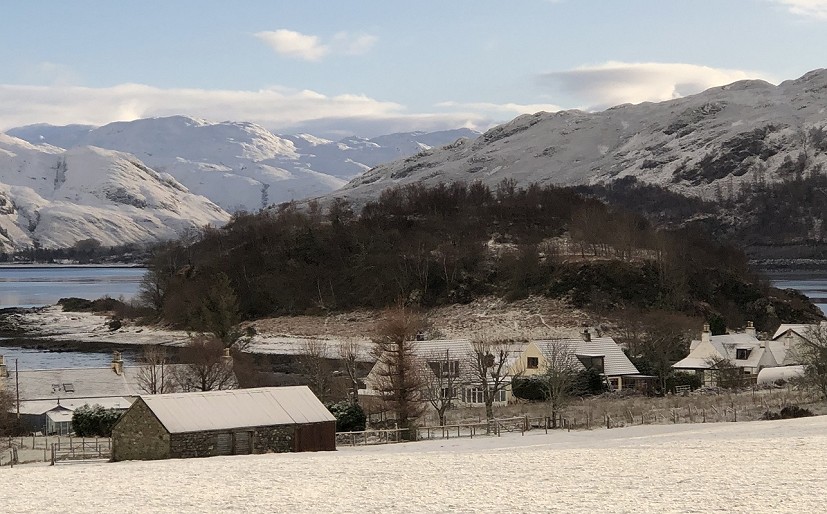
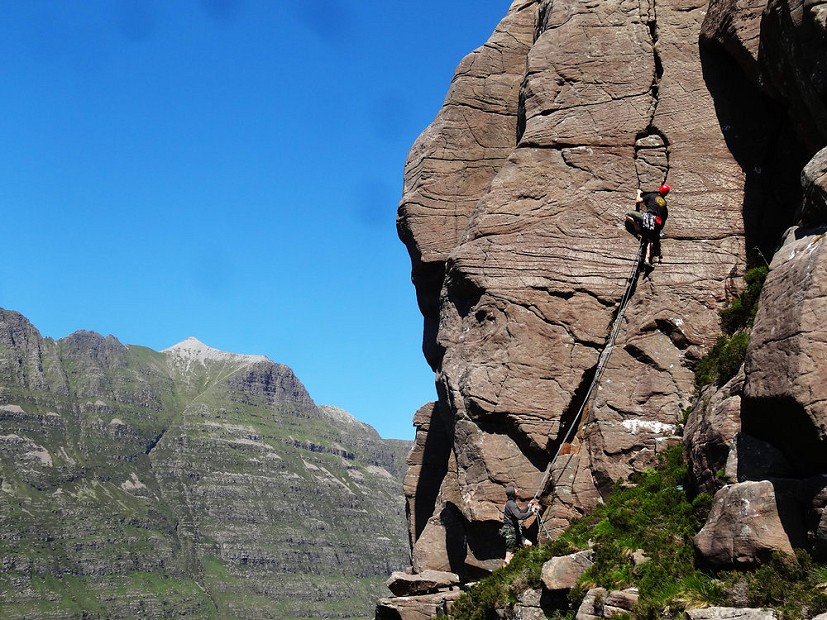
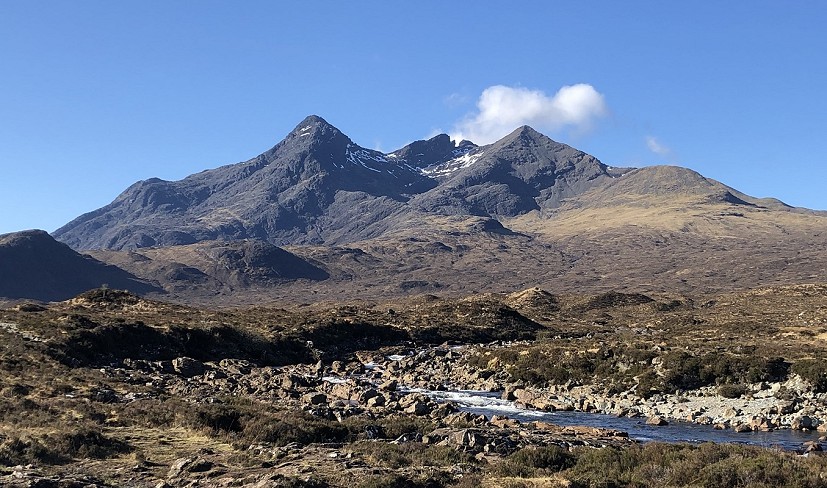
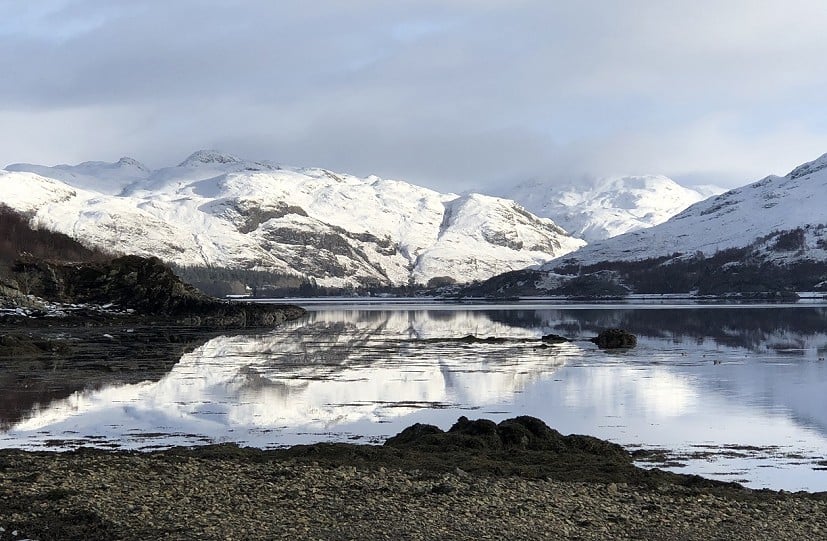

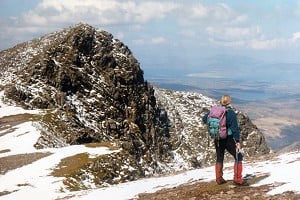
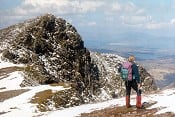
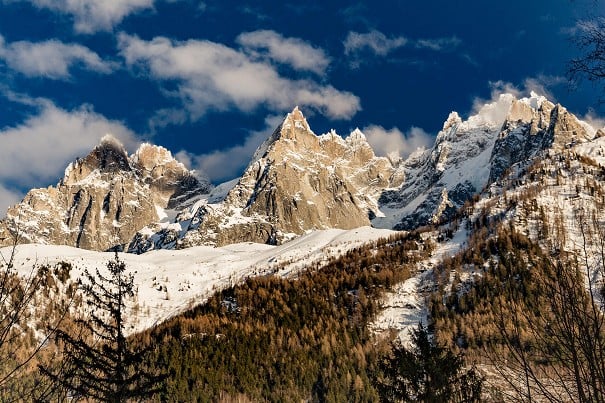
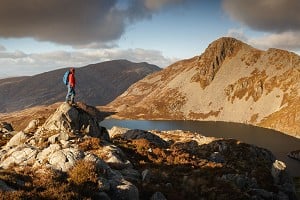
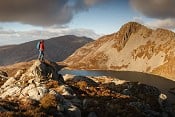
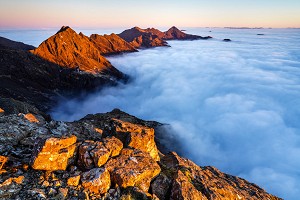

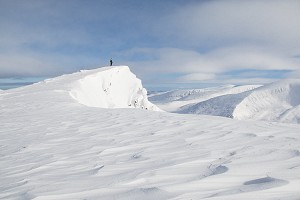
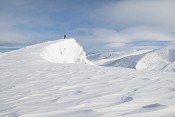
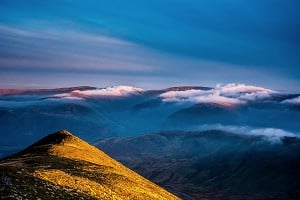

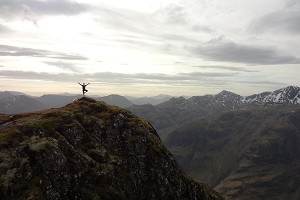
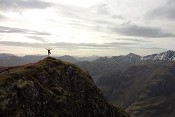
Comments
As someone currently stuck in London, I found this an intriguing read.
If you don't mind me asking, did you change careers in order to enable the move? I'm a career academic so my fate is tied to universities. I increasingly think that one of the ones not based in London would be good....
Loved reading this and thank you for the honest perspective of the (few) negative sides to. Interestingly, I had to move out of London for work... but to Norfolk. Although I'm sad to be in the flattest area of the country, I had a similar epiphany once out of the 'bubble' of London life about how much better it was to slow down and be amongst nature, and gained a great love of the immense coastal areas up here. I realised how much I'd missed rural life and taken it for granted having grown up most of my life on the edge of Dartmoor. But perhaps ironically, I get out into the hills more now than any part of my life, because paradoxically I live further from them, it feels so much more special. I still hope to move closer to hills / back south-west eventually, but I think the importance of getting out of London can't be overstated, regardless of where that may be in relation to mountains. Plus its great to see London's beauty as a tourist now rather than a rushed-off-your-feet resident.
Don't know what field you work in but there are several Scottish universities where you could fairly easily live in a village/small town some 10 -20 miles outside the city - look at Stirling as an example. And there's always the University of the Highlands which seems to be spread across a variety of sites.
Lochcarron looks a nice place to live although I'm not sure 'undiscovered' fits the bill - quite a lot of holiday cottages. Having a train station must help a bit with moving around the country though.
I tried a move 'closer' to the hills moving from southern England to Glasgow (where I grew up). However I moved to Derbyshire after 4 years as I found I spent a huge amout of time travelling south for work and social events and reckoned the 'net' time travelling was probably less when I lived south. However there is no doubt nipping up a Corbett after work on a long summer's evening is both joyful and not possible from Bakewell.
I do wonder if the ability to settle in somewhere like Lochcarron is more about settling into village life (vs living in a large town or city) than the actual location in the country.
Interesting question. We'll be looking at other locations in upcoming episodes, so we may get some answers